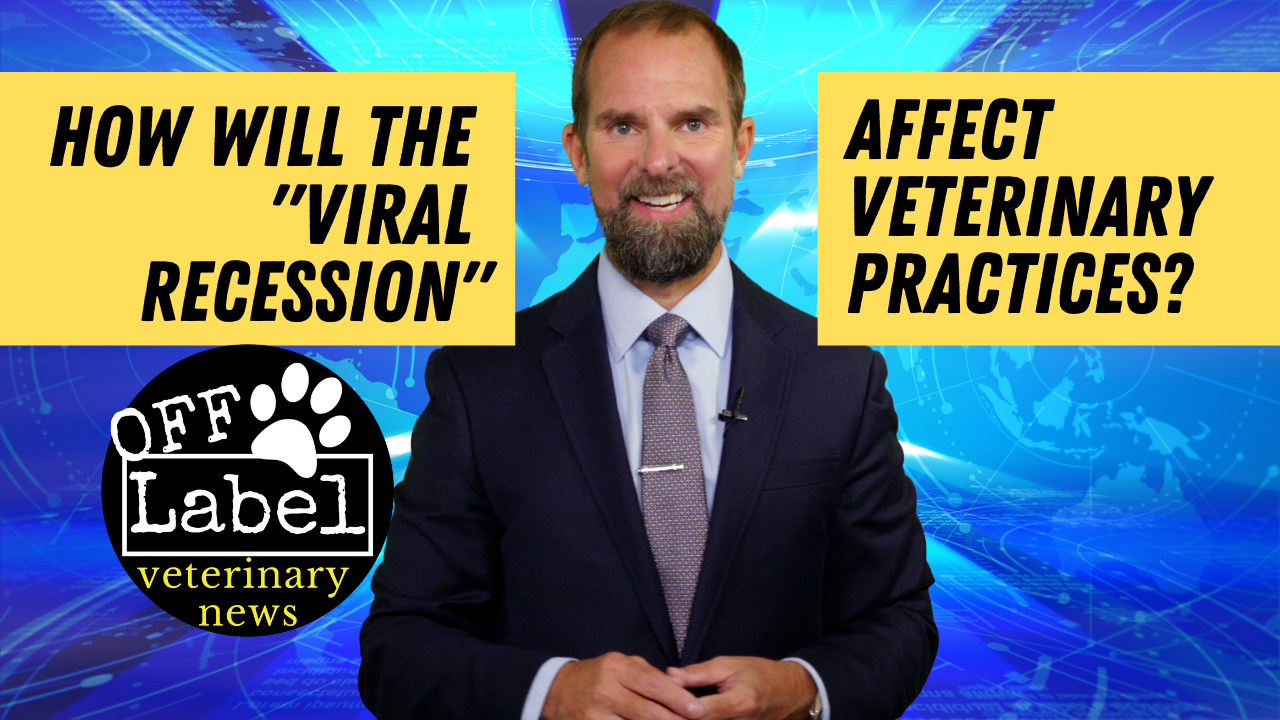
VIDEOS & BLOGS
Don’t Hang Up, Veterinary Clinics! The Persistent Power of Phone Calls & Orders
As veterinary clinics rush to fill online orders and ramp up telemedicine, don’t forget to answer the phone! Over 30-percent of your clients may be depending on it!
While they continue to spend a lot of money and have a lot of pets, studies suggest that people over 60 to 65 years of age are less likely to use online ordering, and are more uncomfortable sharing credit card or bank information over the internet. So what do they still regularly use? The telephone. Don’t hang up! Let’s review some steps to keep your clinic’s phone connections clear with clients.
Veterinary Face Mask Police: Tips to Encourage Pet Parents to Wear Protective Masks when Visiting Veterinary Clinics
Face mask police? What if clients refuse to wear masks during veterinary appointments? How can clinics encourage or require clients to wear face masks during visits?
As the COVID-19 pandemic persists, people are being urged to wear protective face masks. Several states and cities are issuing fines for adults who refuse to don a face-covering in public. An increasing number of US retailers, including Costco, are requiring shoppers to put on masks before entering their stores. But what about veterinary clinics? Let’s review some of the emerging issues regarding potential COVID-19 infection from our clients, protocols and tips to encourage pet parents to wear face masks, and why it may be necessary for owners and managers to become the “face mask police” in order for you to protect your staff and other clients.
How Will the Potential "Viral Recession" Affect Veterinary Practices?
As US employment hits 14.7%, how will the potential “Viral Recession” affect US veterinary practices? It’s not all gloom-and-doom, but it’s still far from sunshine-and-rainbows.
As of May 8, 2020, the official US unemployment rate was 14.7%, accounting for over 33 million Americans. This marks the highest level of workers laid off since the Great Depression of the 1930s. Many economists predict the actual unemployment rate is 20%, citing that nearly one in five US laborers has filed for unemployment benefits since April.
How will record unemployment affect pet spending over the next several months? While no one knows for sure, there are some clear trends we can turn to for guidance and help veterinary and pet professionals survive - and thrive - during this time.
Topics covered include:
- Historical context and economic forecasts
- Why is the stock market booming when unemployment is soaring?
- Veterinary telemedicine
- Online pet food and pet supplies sales
- Chewy revenues Q1 2020
- Potential for pharmaceutical companies to go DTC or acquire online platforms
- Potential drop in preventive veterinary medicine
- Increased pet owner price pressure: discounting and rebates
- COVID-19 scenarios and economic impacts
- Impact on general veterinary practices, emergency clinics, and specialty care groups
- Future opportunities for general veterinary practices
Top 5 veterinary client communication messages post-quarantine
As veterinary practices across the country begin to reopen, here are the top five messages you should share with your clients today.
While I think it will be many months before the world is safe from COVID-19, the reality is most veterinary professionals will be returning to practice over the next few weeks. This transition begins with practice owners and managers creating a safe working environment for their teams. This includes providing adequate personal protective equipment (PPE), proper training on PPE usage, and ensuring correct hygiene practices such as hand and surface sanitizing and social distancing techniques are used by the team, even when working in close quarters. In addition to keeping your staff safe, veterinarians need to communicate with clients to make them more comfortable when bringing their pets into our clinics. There are innumerable rumors, myths, and misinformation about COVID-19, many involving animals. By proactively communicating with your clients, you can dispel these falsehoods and encourage veterinary care to protect our pet patients.
Zoetis Launches Pet Insurance Company!
After months of whispers and speculations, Zoetis has officially launched its pet insurance company, Pumpkin. Many of my colleagues had heard about their pilot program, and were eagerly awaiting its debut. I think this is an incredibly smart and strategic move by Zoetis, and I also think it signals future moves by the world’s largest veterinary pharmaceutical company. In fact, I think we’ll soon have to drop the “pharmaceutical” designation and stick with “veterinary company.” I also want to point out that this post is not affiliated with Zoetis or Pumpkin. I just wanted to let my veterinary colleagues know about it because I think our clients are going to ask us questions about it. Let’s jump into it!
North Carolina Dog Tests Positive for Coronavirus: What does this mean for pet parents?
A two-year old pug in Chapel Hill is the first US dog to test positive for SARS-CoV-2, the virus that causes human COVID-19. If you’re a regular visitor to this channel, this is no surprise. Over a month ago we discussed the fact that dogs and other companion animals could test positive for coronavirus and yet pose no known threat of spreading the disease to humans. That’s still true today. Let's discuss what this latest development means for pet parents and guidelines to keep your pets safe from COVID-19.
Comforting Cat Owners’ Coronavirus Concerns
Pet parents are increasingly worried that their cat could potentially contract COVID-19 when visiting their veterinarian for exams and vaccinations. Now is the time for veterinary professionals to create practical strategies and policies to keep our pet patients safe from potential SARS-CoV-2 exposure within our clinics. It’s time to think beyond curbside service and accept this “new abnormal” as the “new normal,” at least until we have a COVID-19 vaccine or treatment. The fact is that even after we have a human coronavirus vaccine, we’ll still need to take precautions to protect animals, especially cats and ferrets, from contracting or serving as potential reservoirs of SARS-CoV-2. Let’s discuss some steps many of our colleagues are already implementing and how to comfort clients concerned about visiting for annual exams and vaccines.
Dr. Ernie Ward's Tales from the COVID-19 Veterinary Front Lines
Dr. Ernie Ward shares his observations and advice for veterinary professionals during the COVID-19 pandemic.
Comfort or Confusion? Idexx Announces SARS-CoV-2 Test for Pets
Will the ability to test dogs, cats, and ferrets for the COVID-19 virus bring comfort or confusion to pet parents? As with nearly everything related to COVID-19, it’s complicated, complex, and downright confusing. Let me explain why I think this is a good move for Idexx, and how it may help slow the spread of COVID-19.
Cats and COVID-19: No Need to Panic Yet
A new study concludes cats can be infected with SARS-CoV-2, the virus that causes COVID-19 in humans. They can also spread the coronavirus to other cats, at least according to a small research study from China published March 31, 2020. There is no evidence that cats (or dogs) can transmit the virus to people, other than serving as an accidental fomite, in the same way you could potentially contract COVID-19 from a contaminated door handle or handrail. The overwhelming consensus is that our pets pose no particular threat to infecting us with the novel coronavirus. What is most interesting about this latest research and a recent feline case study from Belgium is that cats appear to be able to become infected and exhibit symptoms of COVID-19. This isn’t a surprise for veterinarians; cats were weakly susceptible to SARS, the human coronavirus that caused a global pandemic in 2003, and no evidence of cat-to-human transmission was found. This is different than dogs, a species that, based on all scientific evidence, cannot actively infect other dogs (or people) or experience COVID-19 symptoms.










